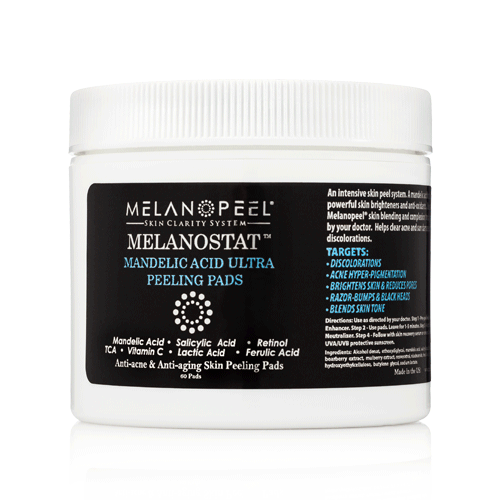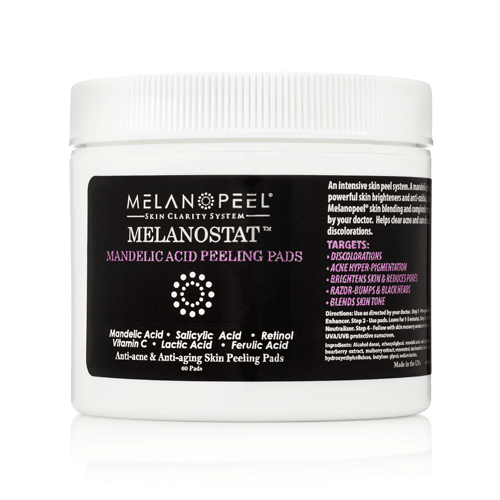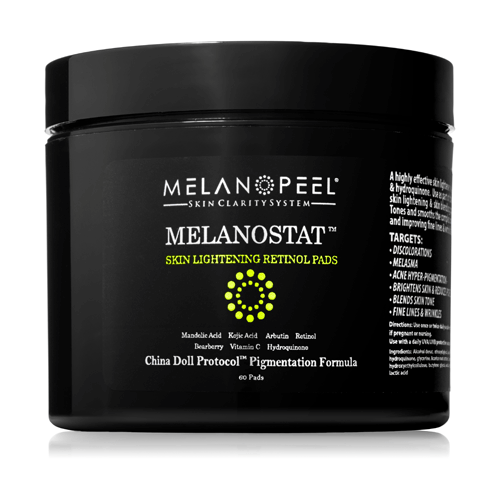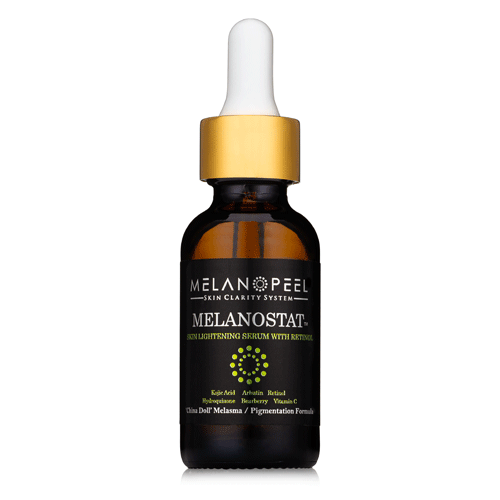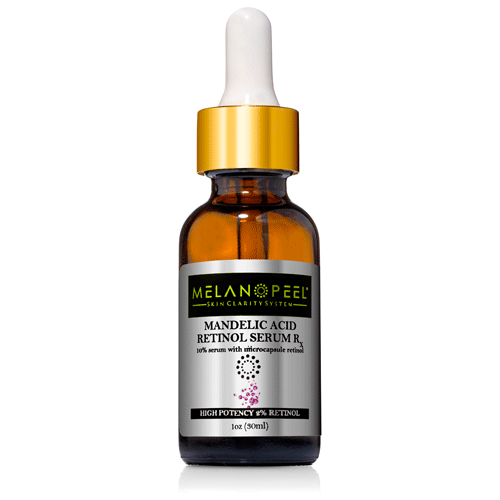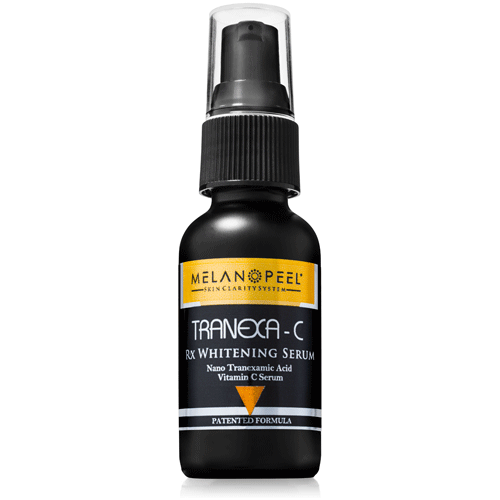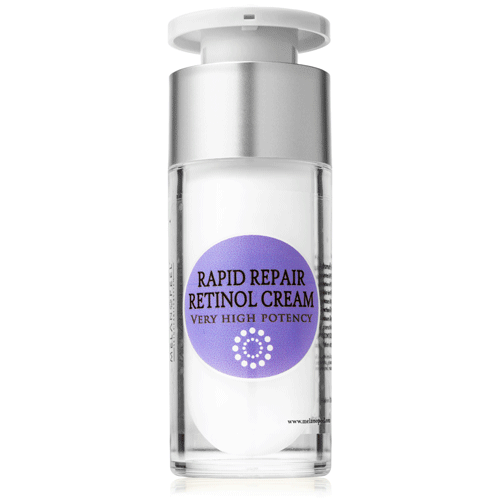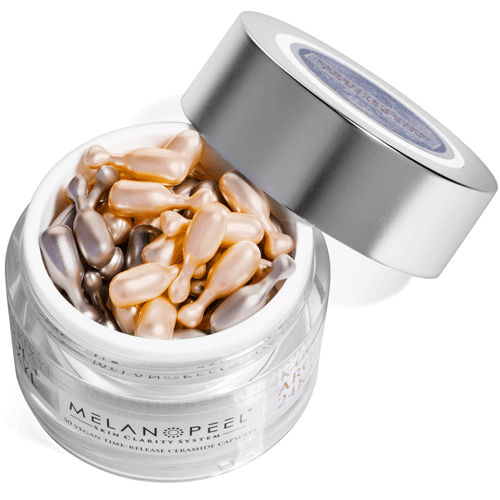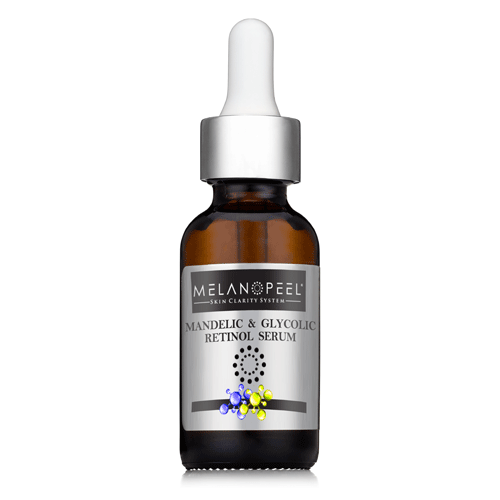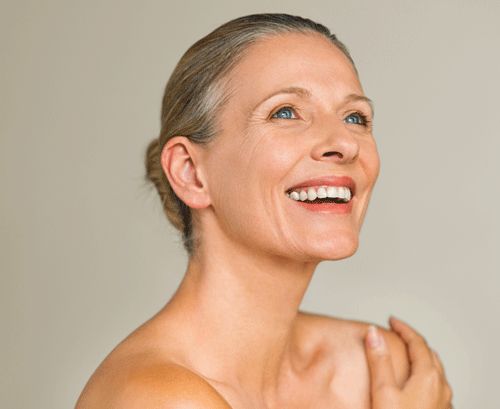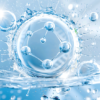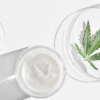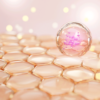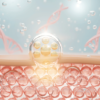Hormonal skin aging has emerged as a new term, and is pretty much a new category in skin care. Hormonal skin aging addresses the specific changes that occur when the hormone levels in your body decline over time.
What happens as your hormones change:
As time passes and you become older, hormone levels in your body start decreasing exponentially including growth hormone, testosterone, estrogen and dehydroepiandrosterone (DHEA). Decreased levels of these hormones in your body have many detrimental effects on your skin.
Low levels of certain hormones in your body lead to multiple conditions including dry skin, fluctuation in pH levels, loss of collagen and greater skin sensitivity. Your skin can become loose, thin, and bruise easily due to weakening and shrinking of elastin and collagen fibers. You will also notice that the skin under your eyes become thinner with more wrinkles. Processes like skin repair and regeneration become slow while there is an increase in facial wrinkles. This often becomes more noticeable in perimenopausal and menopausal women. So, clearly, hormonal skin aging has multiple consequences.
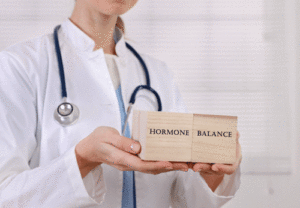
The decline in estrogen levels and dominance of androgen hormone during aging and menopause can also lead to increased facial hair and acne breakouts. Extreme water loss in cells and tissues is also observed. We will now see how individual hormones affect the skin and how to overcome skin-related problems.
How the hormones change:
Insulin
The higher the levels of insulin, the greater the chances of getting wrinkles. Consuming foods high in sugar will result in excessive insulin in the body. A sugary diet also causes glycation or sugar-coating of collagen and DNA making it less elastic and damaged. Avoiding high-sugar diets while consuming a balanced diet can keep your insulin levels balanced, and also reduce cellular glycation. Conjugated linoleic acid, chromium supplements, and proper sleep improve insulin sensitivity, resulting in decreased insulin release.
The higher the levels of insulin, the greater the chances of getting wrinkles. Consuming foods high in sugar will result in excessive insulin in the body. A sugary diet also causes glycation or sugar-coating of collagen and DNA making it less elastic and damaged. Avoiding high-sugar diets while consuming a balanced diet can keep your insulin levels balanced, and also reduce cellular glycation. Conjugated linoleic acid, chromium supplements, and proper sleep improve insulin sensitivity, resulting in decreased insulin release.
Cortisol
Studies have found that stress affects our skin. Cortisol is the only hormone that increases as you get older, and is involved in the loss of collagen resulting in thin, dull and sagging skin. So, anything that manages stress also beats aging.
Estrogen
After menopause, adrenal glands regulate estrogen production in the body. If you have a stressful lifestyle, irregular eating habits or sleep disruption, low estrogen will be produced by adrenal glands. Decreased estrogen production makes our skin less elastic and thinner, leading to sagging and wrinkling. Consuming phytoestrogens such as soy and oats can support estrogen levels in your body.
Testosterone
Increased testosterone levels in the body can result in acne on the chest, back or face, both in men and women. While higher levels will not contribute to aging of the skin, it should be considered as a factor for older females battling hormonal acne. Higher testosterone levels may be caused by a condition called polycystic ovary syndrome (PCOS). DHEA gets converted to testosterone, so high DHEA levels usually also mean high testosterone levels.
Melatonin
Melatonin, also known as an antioxidant hormone, protects our skin from UV rays and helps in repairing damaged or burned skin. Having enough proteins in diets can help maintain melatonin levels in our bodies.

You can control hormonal skin aging by eating enough protein & antioxidants, by regular exercise, by avoiding sugar, taking supplements, by managing stress, timely sleep, and using skin care that protects against free-radical damage.
Progesterone
Progesterone is a revitalizing hormone that maintains the skin’s elasticity and circulation. Aging results in decreased progesterone levels in the body that can be supported by consuming primrose oil, or herbs such as Chasteberry. Healthy sleep and stress management are also crucial to maintain as they support normal progesterone levels.
Growth Hormone
The decline in growth hormone results in skin sagging in your chin, cheeks or above knees area. Growth hormone is essential for skin cells repair and the prevention of sagging. Levels however, decline with aging. Exercises, proper sleep and consuming enough protein can help this skin-repairing hormone levels to rise in the body, thus slowing aging.
Despite the fact that aging and other factors are beyond your control, there are many steps you can take to help your hormones function optimally. In a nutshell, you can control hormonal skin aging by eating enough protein & antioxidants, by regular exercise, by avoiding sugar, taking supplements, by managing stress, and timely sleep. Consuming healthy fats, high fiber diet, omega-3 fatty acids, and plant-based antioxidants are also involved in controlling hormonal skin aging at different levels.
Solutions for hormonally aging skin – we focus on science capable of and clinically-proven to reverse aging. Our Melanopeel® top 9 cutting-edge anti-aging products are based on the following ingredients: Mandelic acid, high-potency retinols, vitamin C, glycolic acid, tranexamic acid, salicylic acid, TCA & peptides.
Click here to learn more about the Melanopeel® anti-aging products
